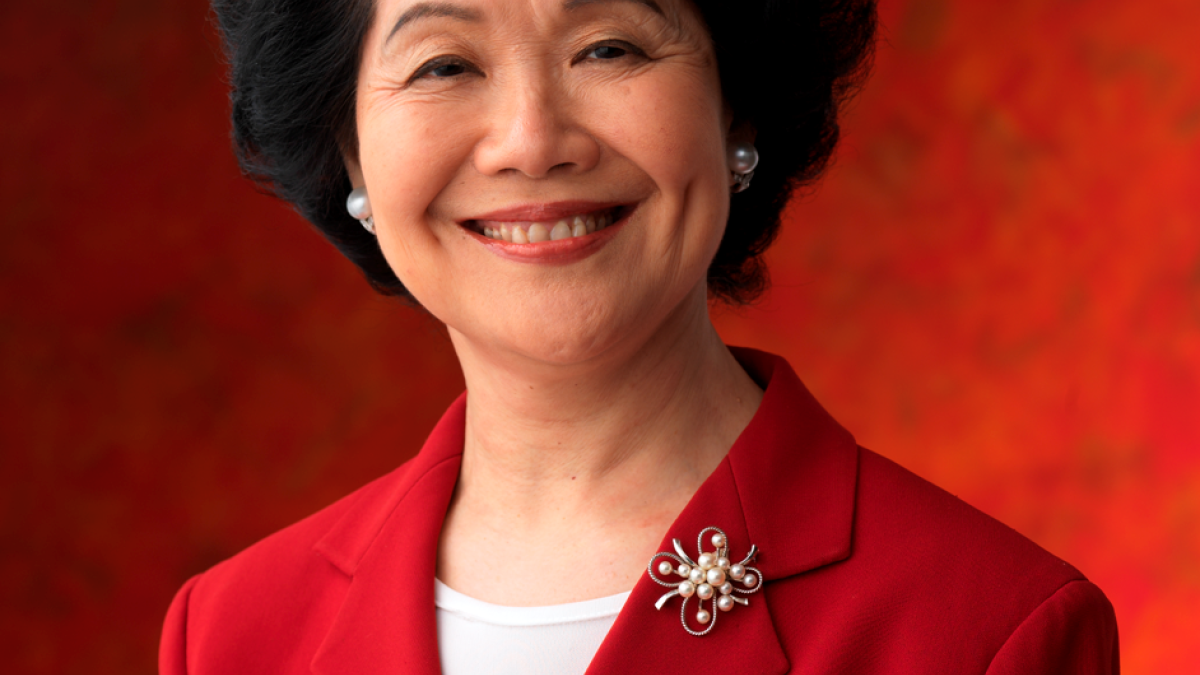O’Connor Justice Prize to honor Anson Chan, longtime champion of social justice in Hong Kong

Anson Chan, 2018 O'Connor Justice Prize Honoree
Anson Chan, known as “Hong Kong’s conscience” for her decades of devotion to social justice and democracy, has been named the fourth recipient of the annual O’Connor Justice Prize.
The award, administered by the Sandra Day O’Connor College of Law at Arizona State University, was created to honor the legacy of the school’s namesake, retired U.S. Supreme Court Justice Sandra Day O’Connor. It recognizes those who have made extraordinary efforts to advance rule of law, justice and human rights.
Like O’Connor, Chan broke through significant demographic barriers in her remarkable career, rising through the governmental ranks to become chief secretary, the second-highest position in Hong Kong’s government. She was not only the first female but also the first Chinese chief secretary of Hong Kong.
Chan will be formally presented with the award at the annual O’Connor Justice Prize dinner, on Feb. 10 in Phoenix.
“I am deeply honored and delighted to accept this prestigious award in honor of a great lady whom I deeply admire,” Chan said.
She added that she is a great admirer of all that O’Connor has achieved in her illustrious career, and the values that she stands for. And Chan said she greatly looks forward to meeting O’Connor in February and discussing shared interests.
Born in Shanghai in 1940, Chan moved to Hong Kong as a child. She began a career in government in 1962, joining the civil service as an administrative service cadet. Her salary was reportedly three-fourth of her male equivalents. She would later chair the Association of Female Senior Government Officers, fighting for better rights for female civil servants — most notably wage parity.
In 1984, she became Hong Kong’s first female civil service director when she was appointed director of social welfare. She continued her historic ascent through the governmental ranks, becoming chief secretary in 1993. In the run-up to the British handing control of Hong Kong back to China in 1997, Chan was viewed as one of the most powerful women in Asia and the face of Hong Kong, assuring world leaders that the transition would go smoothly and civil liberties would be upheld.
Chan left office in 2001 after nearly 40 years working in government. A champion of transparent and accountable government, she has spent the past decade leading efforts for full universal suffrage for election of Hong Kong’s chief executive and all members of its legislature. She launched Hong Kong 2020, a small think tank concerned with democracy and governance issues, and is a founding director of Project Citizens Foundation. The foundation promotes civic awareness and participation and educates the public, particularly the younger generation, on the need to protect Hong Kong’s core values, rule of law and basic rights and freedoms under the “one country, two systems” government concept that applies to Hong Kong.
Previous recipients of the O’Connor Justice Prize were U.N. High Commissioner for Human Rights Navanethem Pillay of South Africa, Foreign Minister Ana Palacio of Spain and former U.S. President Jimmy Carter.
More Law, journalism and politics

ASU committed to advancing free speech
A core pillar of democracy and our concept as a nation has always been freedom — that includes freedom of speech. But what does…

ASU experts share insights on gender equality across the globe
International Women’s Day has its roots in the American labor movement. In 1908, 15,000 women in New York City marched to protest…

ASU Law to offer its JD part time and online, addressing critical legal shortages and public service
The Sandra Day O’Connor College of Law at Arizona State University, ranked 15th among the nation’s top public law schools,…